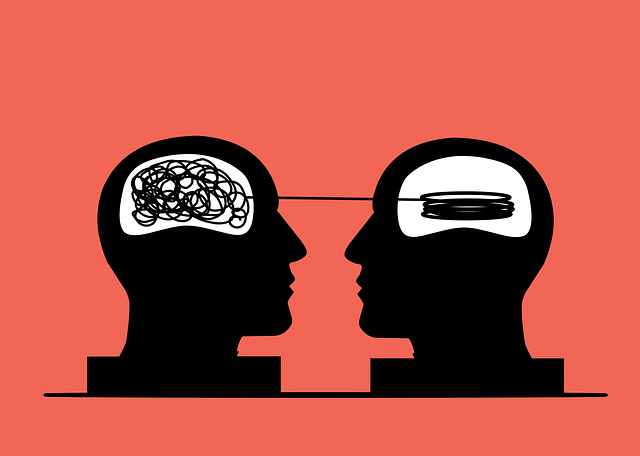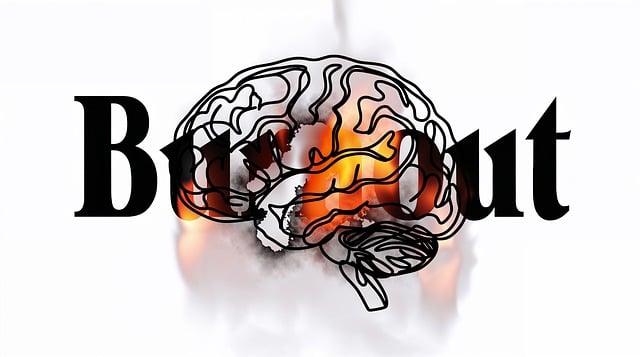Mental wellness group facilitation offers powerful support for new mothers with postpartum depression and anxiety through safe, community-driven spaces. At Arvada Postpartum Depression Therapy, trained facilitators guide open dialogues, encourage active participation, and promote understanding using techniques like active listening and mindfulness exercises. This approach breaks down stigma, builds resilience, and equips mothers with long-term coping strategies, aligning with Mental Health Policy goals to create inclusive support systems. Effective communication strategies ensure all participants grasp complex concepts, fostering trust and personal growth. Encouraging peer support through sharing and collaborative problem-solving strengthens community and enhances emotional well-being during the healing journey.
Mental wellness group facilitation is a powerful tool for healing and support, especially in addressing challenges like postpartum depression. This article explores effective techniques for facilitators, focusing on the unique needs of postpartum depression support groups in Arvada. We’ll delve into creating safe spaces, facilitating open communication, fostering peer support, and encouraging active participation. By understanding these roles and strategies, we aim to enhance the impact of group therapy for those seeking mental wellness in Arvada postpartum depression therapy.
- Understanding Mental Wellness Group Facilitation
- The Role of a Facilitator in Postpartum Depression Support Groups
- Creating a Safe and Inclusive Environment for Sharing
- Effective Communication Strategies for Group Leaders
- Encouraging Active Participation and Peer Support
Understanding Mental Wellness Group Facilitation

Mental wellness group facilitation is a specialized skill that plays a pivotal role in supporting individuals navigating various mental health challenges. It involves creating a safe and supportive environment where participants can connect, share experiences, and gain insights from one another. This approach recognizes the power of community and collective healing, offering an effective alternative to individual therapy for many. Facilitators, often professionals like therapists or counselors, guide conversations, encourage active participation, and foster open dialogue.
In the context of Arvada Postpartum Depression Therapy, group facilitation techniques are invaluable. These groups provide a platform for new mothers to share their struggles with depression and anxiety, breaking down the stigma associated with mental health issues. Through group activities and discussions, participants build resilience, develop inner strength, and learn coping strategies tailored to their unique experiences. Public Awareness Campaigns Development can greatly benefit from these facilitations, as they educate the community about mental wellness, encourage early intervention, and promote overall well-being.
The Role of a Facilitator in Postpartum Depression Support Groups

In postpartum depression support groups, the facilitator plays a pivotal role in creating a safe and nurturing environment for mothers to share their experiences, struggles, and triumphs. These professionals are trained to guide discussions, ensuring every participant feels heard and valued. Using effective communication techniques and emotional intelligence, facilitators foster an atmosphere of understanding and compassion, which is crucial for promoting emotional well-being. They facilitate open dialogue, helping members navigate through their feelings and provide valuable coping strategies.
The design of mental health education programs within these groups focuses on empowering mothers with knowledge about postpartum depression, its symptoms, and available treatment options. Facilitators employ various emotional well-being promotion techniques, such as active listening, reflective questioning, and mindfulness exercises, to enhance participants’ self-awareness and resilience. By integrating these practices into group sessions, facilitators not only support immediate needs but also equip mothers with long-term coping mechanisms, contributing to the overall improvement of their mental health and overall Arvada postpartum depression therapy outcomes.
Creating a Safe and Inclusive Environment for Sharing

Creating a safe and inclusive environment is paramount when facilitating mental wellness groups, especially for sensitive topics like postpartum depression. In an intimate setting like Arvada Postpartum Depression Therapy, facilitators must cultivate a non-judgmental atmosphere where every individual feels seen and heard. This involves establishing clear ground rules that emphasize respect, confidentiality, and empathy. Encouraging open dialogue with active listening techniques can help members feel comfortable sharing their experiences and perspectives without fear of criticism or stigma.
The design of mental health education programs should reflect the importance of creating such safe spaces. By incorporating compassion cultivation practices into group facilitations, professionals can foster an environment that promotes healing and growth. This approach aligns with the broader goals of Mental Health Policy Analysis and Advocacy, aiming to reduce barriers to care and create more inclusive support systems for those dealing with mental health challenges, including postpartum depression.
Effective Communication Strategies for Group Leaders

Effective communication is key when facilitating a mental wellness group, especially in addressing issues like Arvada postpartum depression therapy. Group leaders must employ strategies that foster open and honest dialogue. Active listening, where facilitators show genuine interest and understanding, builds trust and encourages members to share their experiences. This creates a safe space for individuals to express their feelings and challenges, promoting meaningful connections among peers.
Additionally, clear and concise language is essential to ensuring all participants grasp the concepts discussed. Group leaders should use simple terminology, provide examples, and offer handouts or visual aids to enhance comprehension, particularly when delving into complex topics. Such techniques contribute to a well-structured Mental Wellness Podcast Series Production, fostering a supportive environment that encourages both personal growth and risk management planning for mental health professionals.
Encouraging Active Participation and Peer Support

Encouraging active participation and peer support is a cornerstone of effective mental wellness group facilitation. In an environment like Arvada Postpartum Depression Therapy, fostering open dialogue and collaborative problem-solving empowers individuals to take ownership of their healing journey. Techniques such as round-robin sharing, where each member takes turns expressing their thoughts and experiences, create a safe space for vulnerability and build camaraderie among participants. This collective approach not only enhances emotional support but also encourages the exchange of practical coping skills developed through personal trials.
Peer support is further strengthened through structured activities like Mindfulness Meditation sessions or Stress Management Workshops organized by the therapy group. These shared practices cultivate a sense of community, as individuals learn from one another’s experiences and strategies for managing stress and anxiety. Coping Skills Development becomes more effective when members can draw on collective knowledge and offer mutual encouragement, making the process dynamic and adaptive to individual needs.
Mental wellness group facilitation plays a pivotal role in supporting individuals like those seeking Arvada postpartum depression therapy. By fostering safe, inclusive environments, facilitators can encourage active participation and peer support, enhancing the therapeutic benefits of these groups. The strategies outlined, from understanding mental wellness facilitation to effective communication and creating supportive spaces, equip leaders to effectively guide and empower group members on their journeys towards better mental health.














